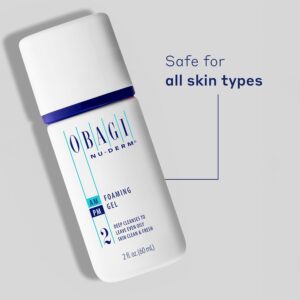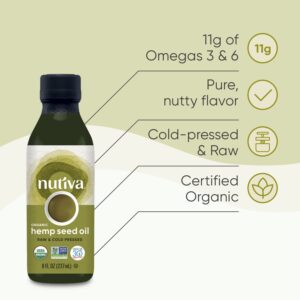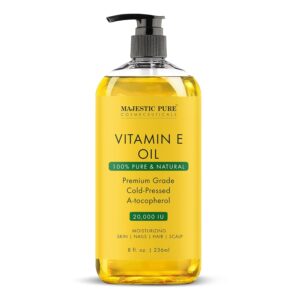
The best organic face wash for sensitive skin in 2024 and beyond – your ultimate GlowGuide to finding that perfect natural cleanser that soothes, purifies, and transforms your sensitive skin journey.
Did you know that over 60% of people claim to have sensitive skin? I struggled with angry, reactive skin until I discovered the power of organic face washes for sensitive skin like Christina Moss Naturals Organic Face Wash or Honest Beauty Gentle Gel Daily Face Cleanser! As a skincare enthusiast, I’ve spent countless hours researching and testing natural cleansers. Today, I’ll share the best organic face washes that will cleanse your sensitive skin without irritating it.
Table of Contents
ToggleUnderstanding Sensitive Skin and Organic Cleansers
Definition of Truly Sensitive Skin vs. Sensitized Skin
Let’s clear up a common misconception! While many of us think we have sensitive skin, there’s a big difference between naturally sensitive and sensitized skin. I discovered this distinction during my years of skincare research, and it’s a game-changer for choosing the right cleanser.
Truly sensitive skin is genetic – you’re born with it. If you’ve always had skin that reacts easily to temperature changes, gets red quickly, or feels tight even with gentle products, that’s naturally sensitive skin.
It’s typically accompanied by conditions like rosacea, eczema, or persistent inflammation.

On the other hand, sensitized skin is a temporary condition caused by external factors. Maybe you’ve overused harsh exfoliants, exposed your skin to extreme weather, or tried too many new products simultaneously (we’ve all been there!). The good news? Sensitized skin can usually be repaired by simplifying your routine and using gentle, organic cleansers like Obagi Nu-Derm Cleanser for Normal to Oily & Sensitive Skin.
Benefits of Organic Ingredients for Sensitive Complexions
Organic ingredients are like a warm hug for your sensitive skin! Unlike synthetic ingredients, organic compounds work with your skin’s natural processes instead of against them. Here’s what makes them special:
First, organic ingredients typically have higher antioxidant levels – think of vitamin A, vitamin C, and Vitamin E. These powerhouses help protect your skin barrier while fighting environmental damage. Organic botanicals like chamomile and calendula contain natural anti-inflammatory properties that can help calm irritated skin.
Another huge benefit? Organic ingredients are grown without synthetic pesticides or harmful chemicals, which means fewer potential irritants come into contact with sensitive skin. People we recommend often notice a significant difference in skin comfort within weeks of switching to organic cleansers.
Key Certifications to Look for (USDA, COSMOS, Ecocert)
Don’t get fooled by greenwashing! In the wild world of “natural” skincare, certifications are your best friends. These little symbols on your cleanser bottles mean something important.
The USDA Organic seal is the gold standard in the US – it guarantees at least 95% organic ingredients. COSMOS and Ecocert are respected European certifications that ensure strict organic and natural ingredient standards. Before purchasing any “organic” cleanser, I always check for at least one of these certifications.
Less known but equally important are certificates like NATRUE and the Soil Association. These organizations have rigorous benchmarks for organic and natural cosmetics, often exceeding basic requirements.
Common Irritants to Avoid in Conventional Cleansers
Here’s the scary truth – many conventional cleansers contain ingredients that can wreak havoc on sensitive skin. I’ve compiled a list of the worst offenders based on dermatological research and personal experience:
1. Sulfates (SLS/SLES): These harsh surfactants strip your skin’s natural oils
2. Synthetic fragrances: A major trigger for sensitive skin reactions
3. Artificial colors: Unnecessary additives that can cause irritation
4. Parabens: Preservatives linked to skin sensitivity
5. Phthalates: Often hidden in fragrance formulations
Instead, use cleansers with gentle, plant-based surfactants like coco glucoside or decyl glucoside. These naturally derived ingredients effectively clean without disrupting your skin’s delicate balance.
Pro tip: Even natural ingredients can sometimes cause reactions. I always recommend patch-testing new products on your inner arm for 24 hours before applying them to your face. Remember, your skin’s needs might change with seasons or stress levels, so stay tuned to how it responds to different ingredients.
Top Ingredients to Look for in Organic Face Washes
Are you digging for a genuinely natural way to cleanse your face? Understanding what goes into organic face washes can help you make better skincare alternatives. Let’s research the ingredients that make natural cleansers effective for your daily routine.
Calming botanicals (chamomile, calendula, aloe) in Organic Face Wash for Sensitive Skin
Starting your skincare journey with gentle plant extracts can transform your cleansing experience. These nature-sourced ingredients do more than just clean – they actively support your skin’s health. Wild-crafted chamomile soothes irritated skin while reducing unwanted redness. Organic calendula, sometimes called nature’s skin healer, helps repair and protect your skin barrier. Fresh aloe vera gel, extracted directly from the plant’s leaves, provides natural moisture without clogging pores.
Many people overlook these botanical powerhouses, focusing instead on trendy synthetic ingredients. However, these time-tested plant extracts offer remarkable benefits for sensitive skin types. Combined with a face wash, they create a gentle yet effective cleansing base that won’t disturb your skin’s natural balance.
Gentle surfactants derived from coconut in Organic Face Wash for Sensitive Skin
Understanding cleansing agents can be tricky, but coconut-based surfactants offer a pure alternative to harsh chemicals. These plant-derived cleansers work differently from traditional soap-based products. Instead of stripping your skin, they gently remove dirt and excess oil while maintaining essential moisture.
Raw coconut-derived surfactants break down daily impurities without disrupting your skin’s delicate microbiome. This gentle approach to cleansing helps prevent the tight, uncomfortable feeling many people experience after washing their face. Look for unrefined coconut surfactants in your organic face wash – they’re often listed as coco glucoside or sodium cocoyl glutamate on ingredient labels.
Nourishing Natural Oils (Jojoba, Hemp Seed) in Organic Face Wash for Sensitive Skin
Cold-pressed plant oils play a crucial role in organic face washes, though many people mistakenly avoid them. Raw jojoba oil closely matches your skin’s natural oil structure, making it an excellent cleanser for all skin types. Unrefined hemp seed oil, rich in omega fatty acids, helps balance oil production while providing essential nutrients.

These pure plant oils work differently from synthetic moisturizers. They help dissolve makeup and sunscreen while simultaneously nourishing your skin. When combined with gentle surfactants, these oils create a balanced cleansing experience that leaves your face clean but never stripped.
Skin-Supporting Vitamins and Antioxidants in Organic Face Wash for Sensitive Skin
Natural vitamins and antioxidants provide more than just basic skincare benefits. Whole-plant vitamin E protects your skin from environmental stress while supporting its natural healing processes. Raw botanical antioxidants, sourced from organic herbs and fruits, fight free radical damage throughout the day.

Many commercial products use synthetic versions of these nutrients, but organic face washes contain them in their natural state. This means better absorption and more benefits for your skin. When choosing a cleanser, look for products that list complete plant sources rather than isolated vitamin names.
Remember, effective organic skincare doesn’t need complicated ingredient lists. The best natural face washes combine these four essential elements in their purest forms. By choosing products with these carefully selected ingredients, you’re supporting both your skin’s health and sustainable beauty practices.
Instead of following trendy skincare advice, focus on these time-tested organic ingredients. They’ve been used for generations to maintain healthy, balanced skin. When combined thoughtfully, they create a gentle yet effective cleansing routine that supports your skin’s natural processes.
Your face wash forms the foundation of your skincare routine. Choosing one with these organic ingredients helps ensure you’re starting with a clean, nourished base for the rest of your products. Take time to read ingredient labels and look for these natural components – your skin will thank you for choosing gentle, effective organic options.
Best Organic Face Washes for Different Skin Concerns
Finding the perfect organic face wash can feel like searching for a needle in a haystack. With countless natural cleansers flooding the market, let’s explore carefully curated options that genuinely deliver results for specific skin needs.
Best Overall Organic Cleanser for Sensitive Skin
When dealing with reactive skin, gentle yet effective cleansing becomes crucial. Small-batch handcrafted cleansers often provide the most nurturing experience for sensitive complexions. Look for face washes containing stress-relieving botanicals like butterfly pea flower or wild-harvested marshmallow root. These lesser-known ingredients offer exceptional calming properties without triggering reactions.
Local artisanal brands frequently incorporate mountain-grown herbs and unprocessed plant extracts that larger manufacturers overlook. These pure ingredients work harmoniously to cleanse without disrupting your skin’s delicate balance. For ultra-sensitive skin, consider oil-to-milk formulations that use unrefined camellia seed oil as their base – a gentle alternative to traditional foaming cleansers.
Top Pick for Combination Sensitive Skin
Balancing combination skin while respecting its sensitive nature requires thoughtful ingredient selection. Forest-harvested white willow bark provides natural BHA properties without the harshness of synthetic salicylic acid. When combined with raw honey crystals, it helps manage oily zones while soothing dry, reactive areas.
Lesser-known ingredients like wild-crafted soapwort root create mild, natural foam without stripping moisture. Australian desert lime, rich in native vitamin C, offers gentle exfoliation for combination skin that can’t tolerate traditional scrubs. These unique botanical combinations provide effective cleansing while maintaining skin harmony.
Best Budget-Friendly Options
Affordable organic skincare shouldn’t mean compromising on quality. Small homestead-grown herb producers often create exceptional cleansers at reasonable prices. Look for brands using locally sourced ingredients like hand-pressed rosehip oil or sustainably wildcrafted yarrow. These companies frequently offer refill programs, making their products even more cost-effective.
Community-supported agriculture (CSA) beauty brands incorporate seasonal botanicals into their cleansers, providing fresh, potent ingredients at lower costs. Consider cleansing bars made with cold-processed goat’s milk from family farms – they last longer than liquid cleansers while delivering superior nourishment.
Luxury Organic Face Washes Worth the Splurge
Sometimes investing in premium natural skincare yields transformative results. Artisanal producers using rare, ethically wildcrafted ingredients create unique formulations worth their higher price point. Alpine-sourced edelweiss extract, known for its protective properties, appears in limited-quantity cleansers from small European makers.
High-end organic brands often incorporate precious ingredients like hand-harvested sea buckthorn or glacier milk – pure water collected from melting glaciers rich in trace minerals. These exceptional elements, combined with time-intensive traditional extraction methods, justify their luxury status.
Look for cleansers featuring snow lotus, gathered sustainably from high-altitude regions, or blue tansy oil distilled in small batches by master herbalists. While expensive, these products often contain higher concentrations of active botanicals and require less product per use.
When selecting luxury organic face washes, focus on those using traditional processing methods like lunar infusion or low-temperature extraction. These techniques preserve the vital energy of precious plant materials, resulting in more effective cleansing experiences.
Remember that investing in quality organic skincare often means supporting sustainable harvesting practices and traditional farming communities. While these products may cost more initially, their concentrated formulations and superior ingredients typically provide better value over time.
Whether choosing budget-friendly options or luxury formulations, prioritize cleansers that match your skin’s specific needs. The best organic face wash is one that respects both your skin’s sensitivity and your personal values while delivering consistent results.
How to Use Organic Face Wash Effectively
Switching to natural skincare is just the first step – knowing how to use your organic cleanser properly can make all the difference in your skin’s health. Let’s explore the essential techniques that maximize the benefits of your organic face wash.
Proper Cleansing Technique for Sensitive Skin
Gentle handling becomes crucial when cleansing reactive or delicate skin. Start by dampening your face with filtered water – tap water minerals can sometimes trigger sensitivity. Using your ring fingers (the weakest fingers), apply your plant-based cleanser using upward circular motions. This traditional Asian beauty technique promotes lymphatic drainage while preventing unnecessary pressure.
For ultra-sensitive complexions, try the “butterfly touch” method: imagine your fingertips are butterfly wings barely touching flower petals. This mindful approach prevents micro-irritation that often goes unnoticed.
Pro tip: Never drag or pull at your skin. Instead, use a patting motion to work the cleanser into your skin, focusing on often-overlooked areas like the nose creases and jawline. This Korean-inspired technique provides thorough cleansing without aggravation.
Water Temperature Considerations
The debate between hot and cold water extends beyond basic preferences. For optimal results, begin with lukewarm water (about room temperature) to open pores gently. Avoid the common mistake of using hot water, which can trigger excess oil production and redness.
When rinsing, gradually decrease the water temperature. End with cool (not cold) water – this helps calm any cleansing-induced redness and gently tightens pores. This temperature transition technique, known as “contrast washing” in European skincare, helps maintain skin barrier function.
Lesser-known tip: Consider using spring water or filtered water if you live in a hard water area. Hard water minerals can interact with natural cleansers, reducing their effectiveness and potentially irritating sensitive skin.
Frequency of Cleansing
Contrary to popular belief, more cleansing doesn’t equal cleaner skin. For most skin types, thorough cleansing once daily (preferably in the evening) provides optimal results. Morning cleansing can be as simple as a water rinse or gentle wipe with a damp organic cotton cloth.
Follow the “mindful cleansing calendar” approach:
- Morning: Light cleanse or water rinse
- Evening: Thorough cleanse
- Post-workout: Quick rinse with plain water
- Double cleanse: Only when wearing heavy makeup or sunscreen
This balanced schedule helps maintain your skin’s natural microbiome – the beneficial bacteria that protect your skin’s health.
Signs Your Cleanser Isn’t Working for You
Understanding your skin’s feedback helps prevent long-term issues. Watch for these often-overlooked signals that suggest your current skin cleanser might not be the right match:
1. Morning residue on your pillowcase
2. Tight feeling that lasts more than 5 minutes after cleansing
3. Increased oil production in unusual areas
4. Delayed redness appearing hours after washing
5. Small bumps along hairline or jaw area
Pay attention to seasonal changes too. Your skin’s needs might shift with the weather, requiring adjustments to your cleansing routine. Watch for subtle signs like increased flakiness or mild irritation – these early indicators often go unnoticed.
Remember, transitioning to organic skincare is a journey unique to your skin. Start with gentle products and adjust your technique based on your skin’s response. When chosen and used correctly, organic face washes can transform your skincare routine from a basic hygiene step into a nurturing ritual that supports long-term skin health.
Special note for sensitive skin types: Consider keeping a skin diary for the first month when using a new cleanser. Track factors like stress levels, diet, and weather alongside your skin’s response. This holistic approach helps identify true cleanser reactions versus external triggers.
Additional Tips for Maintaining Sensitive Skin
Understanding how to care for sensitive skin goes beyond just choosing the right cleanser. Let’s explore evidence-based approaches and lesser-known strategies for maintaining healthy, calm skin.
Complementary Skincare Products: Organic Face Wash for Sensitive Skin
Building a gentle skincare routine requires thoughtful product selection. Start with alcohol-free, microbiome-supporting toners containing fermented rice water or cucumber seed extract.
Lesser-known ingredients to look for:
- Snow mushroom extract: Nature’s alternative to hyaluronic acid
- Propolis-free bee essence: Gentler than traditional honey products
- Marine pine bark: A potent yet gentle antioxidant source
Layer your products using the “7-second rule” – apply each product within 7 seconds of the previous one while skin remains slightly damp. This Korean beauty technique enhances absorption without overwhelming sensitive skin.
Essential additions to your routine:
- Fragrance-free barrier cream with beta-glucan
- Non-nano zinc oxide sunscreen
- Centella-infused spot treatment
Lifestyle Factors Affecting Skin Sensitivity
Understanding environmental and lifestyle triggers helps prevent reactions before they start. Consider these often-overlooked factors:
Indoor Air Quality:
- Install a himalayan salt lamp to reduce air pollutants
- Use a silk pillowcase to reduce friction
- Consider a bedroom humidifier with essential oil-free operation
Diet and Hydration:
- Incorporate omega-3 rich seeds like sacha inchi
- Choose low-histamine foods when possible
- Use copper-filtered water for drinking and washing
Lesser-known triggers to monitor:
- Blue light exposure from devices
- Synthetic fabric face masks
- Hard water mineral buildup
Common Mistakes to Avoid
Many traditional skincare practices can actually harm sensitive skin. Watch out for these under-discussed issues:
Over-exfoliation Signs:
- Morning skin tightness
- Delayed redness response
- Increased reaction to usual products
Avoid these hidden irritants:
- Essential oil-free doesn’t mean fragrance-free
- Natural doesn’t always mean gentle
- Organic products can still cause reactions
Lesser-known mistakes:
- Using facial tools without proper sanitization
- Layering too many active ingredients
- Mixing certain natural ingredients that clash
When to Consult a Dermatologist
While many sensitive skin issues can be managed at home, certain signs warrant professional attention. Track these often-missed indicators:
Subtle Warning Signs:
- Persistent dullness despite proper hydration
- Unexplained texture changes
- Delayed inflammatory response
Seek immediate consultation for:
- Thread-like broken capillaries
- Unusual moisture barrier disruption
- Persistent skin barrier dysfunction
New developments in telemedicine make dermatology more accessible. Consider virtual consultations for:
- Routine sensitivity assessments
- Product reaction documentation
- Treatment plan adjustments
Key indicators requiring in-person visits:
- Unexplained pattern reactions
- Chronic inflammation cycles
- Sudden sensitivity changes
Pro tip: Document your skin’s behavior using a dedicated skin journal app or tracker.
Record:
- Daily sensitivity levels
- Product reactions
- Environmental factors
- Sleep patterns
Remember that sensitive skin needs change seasonally and with age. Regular assessment helps prevent major issues before they develop. Focus on building a consistent, gentle routine that supports your skin’s natural healing processes rather than fighting against them.
Your skin’s microbiome takes approximately 28 days to adjust to new products or routines. Give any changes adequate time before making additional adjustments, and always introduce new products one at a time with patch testing.
Conclusion: Benefits of Using Organic Face Wash for Sensitive Skin
Finding the perfect organic face wash for sensitive skin doesn’t need to be overwhelming. By understanding key ingredients, proper application techniques, and your skin’s unique needs, you can make informed choices that support your skin’s health. Remember that natural skincare is a journey – what works for others might not work for you.
Start with gentle, minimalist formulations and pay attention to how your skin responds. Consider factors like water temperature, cleansing frequency, and complementary products in your routine. Most importantly, listen to your skin’s signals and adjust accordingly. With patience and the right organic face wash for sensitive skin, you can achieve a balanced, healthy complexion without harsh chemicals or irritants.
Take time to build a nurturing skincare routine that honors your skin’s sensitivity while providing effective cleansing. The best organic face wash for sensitive skin is one that leaves your face feeling clean yet comfortable, never tight or irritated.
Remember, investing in quality organic skincare isn’t just about immediate results – it’s about long-term skin health and environmental consciousness. Your skin is unique, and finding the right organic face wash for sensitive skin is a personal journey worth taking.
Disclaimer: GlowGuide participates in the Amazon Services LLC Associates Program, an affiliate advertising program designed to provide a means for sites to earn advertising fees by advertising and linking to Amazon.com. As an Amazon Associate, I earn from qualifying purchases. This means that if you click on an Amazon link on my site and make a purchase, I may earn a commission at no additional cost to you.


